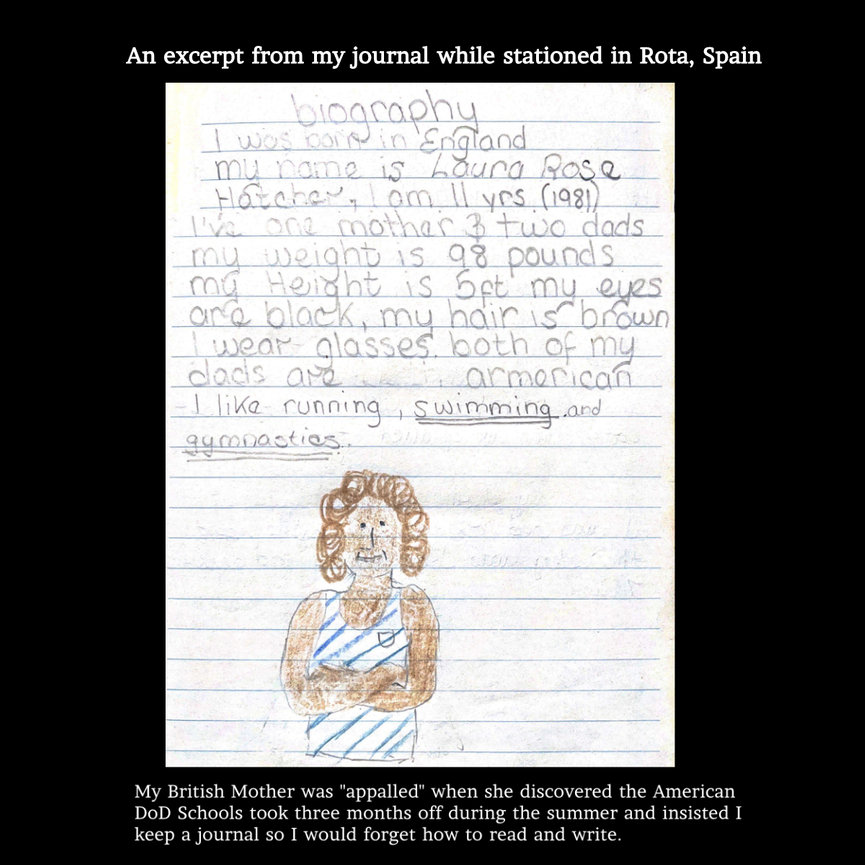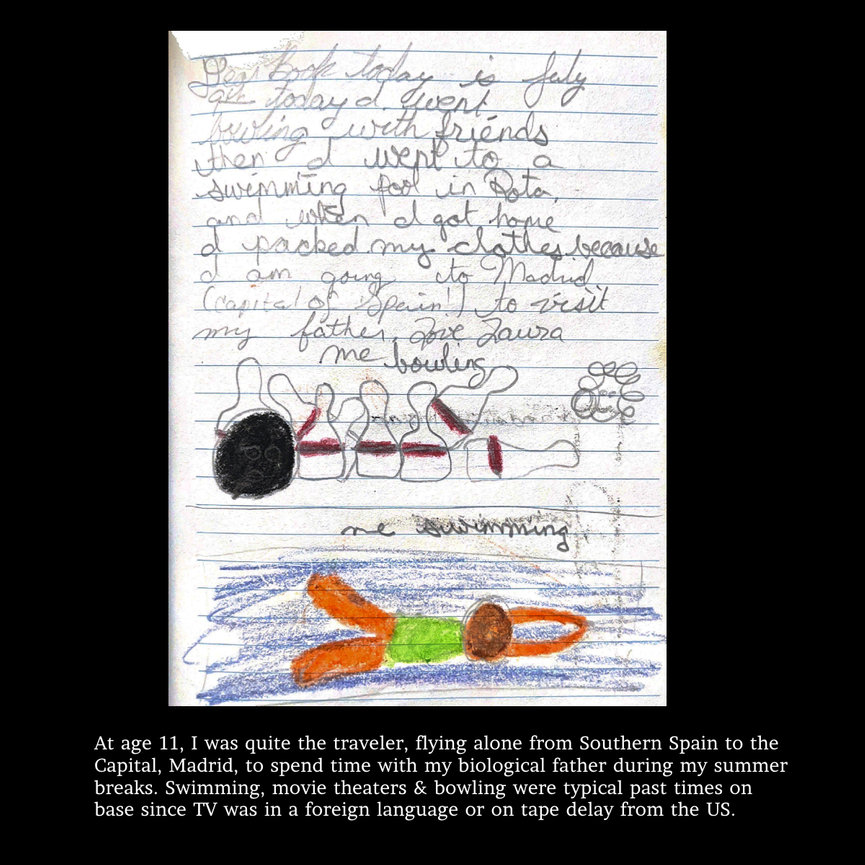"Children are the living messages we send to a time we will not see." - John F. Kennedy
Did you know that the Defense Department celebrates our military children during the month of April?
It's a population of over 1.6 million that face unique challenges and experiences based on their parents' service to the nation.
Why do I care, you ask?
Because I grew up as a "Navy Brat," as we are affectionately called, and we raised three sons throughout most of my military career.
My biological father served in the United States Air Force and my Stepfather, who raised me with my British mother, served in the United States Navy.

During my elementary school years both my Dads were coincidently stationed overseas at the same time in Spain.
My summer vacations included flying home to visit family in the United Kingdom and France or traveling from the Naval Base in Rota, Spain to Torrejon, the former US Air Force Base in Madrid, Spain.

Sometimes I find I'm missing some traditional childhood experiences compared to my peers who grew up in one place, in one house, under one family (with a TV that had more than one channel!) My world revolved around numerous cultures, languages and experiences, long before I truly understood that not everyone was raised like that.
While you may have heard of the term "military brat" did you know there is another phrase, "Third Culture Kid" or TCK that is related to the military child? It was coined by sociologist-anthropologist, Dr. Ruth Hill Useem of Michigan State in the 1950's (and a term that my own eldest son and TCK introduced to me.)
"TCKs are the children who accompany their parents into another society." - Dr. Ruth Hill Useem
Dr. Useem studied how business people from the United States interacted and conducted business with their Indian counterparts -- she lived there with her three children at the time.
She determined being American was the 'first culture', while living in India was the 'second culture', but the space between those worlds was considered the 'third culture'. She also observed the children of these expatriates had different characteristics and experiences; namely the children of missionaries, diplomats, and military members (i.e. "Army Brats," "Navy Brats," etc.)
I found her work insightful and almost comforting in that it helped explain the anxiety we military brats, or TCKs feel from a simple question such as "Where are you from?"
By the time I had graduated from high school, I had attended at least 9 different schools in Europe, North America and Central America. It only made sense that I would later find comfort in joining the service myself where I could continue to move across cultural lines and be in the constant state of change.
It is now a pleasure to capture these TCKs during the many military retirement ceremonies I have the honor of documenting.
Often tales of how they survived and navigated the military parent's career is highlighted in the speeches and gratitude of support. Our military children deserve to be recognized for their resiliency, fortitude and their contributions to those service members they follow worldwide.

0 Comments